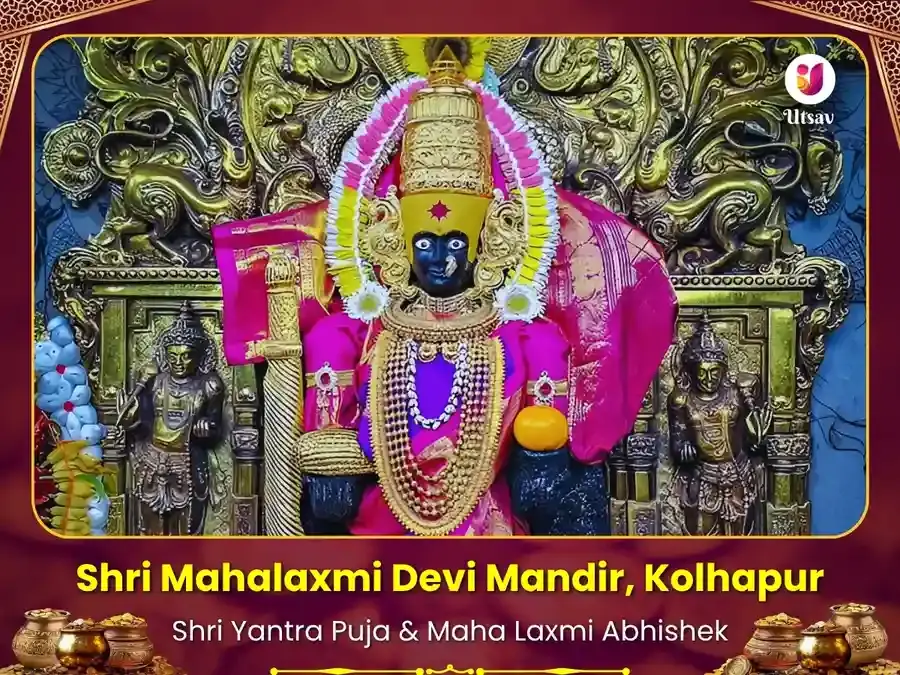Essential Guide to Choosing the Right Hindu God Idols for Your Home and Puja Ghar
Thu - Mar 13, 2025
6 min read
Share
When it comes to setting up a sacred space in your home, the idols of Hindu gods and goddesses play a crucial role in bringing divine energy and blessings. But choosing the right deity idol requires more than just a casual selection. It is essential to consider various factors such as the type of deity, the materials used for crafting the idol, and the proper worship rituals associated with them. In this guide, we will explore the important aspects to keep in mind when selecting an idol for your Puja Ghar and which idols should be avoided.
1. Introduction: The Importance of Selecting the Right Hindu God Idol for Your Home
Hinduism offers numerous paths to spirituality, and one of the most common is through the worship of deities represented in the form of idols or images. A properly chosen idol, placed in a well-maintained Puja Ghar (place of worship), can channel positive energies, blessings, and divine wisdom into your life. However, it’s vital to ensure that the idol reflects the right energies and is in perfect condition to avoid inviting negative forces.
2. Which God Idols Should You Avoid Keeping in Your Home?
In Hinduism, most deities are considered auspicious, but some idols require specific worship rituals or can attract negative energies if not treated with proper respect and devotion. While benevolent deities like Lord Ganesha can be easily placed in your home, deities like Shiva, Kali, or other fierce gods should be handled with care.
Shiva Lingam: This powerful manifestation of Lord Shiva demands regular and sincere worship. Experts recommend keeping only one Shiva Lingam in your Puja Ghar, as having multiple idols may reduce their efficacy.
Furious Goddesses: Deities like Kali or Durga in their fierce forms require specific rituals and devotion. If you are not a Tantric devotee, it’s better to avoid keeping idols of these goddesses in their warlike mood, as they may invite unwanted energies.
Tantric Deities: Powerful gods like Bhairava, Narasimha, and Tantric goddesses such as Mahakali and Tara should only be placed in homes with proper understanding and devotion to Tantra practices. Without the correct rituals, these idols can cause more harm than good.
3. The Significance of Worship Rituals for Hindu Idols
Worshiping Hindu idols isn’t merely a symbolic act; it’s an energetic exchange between the divine and the devotee. When you place an idol of a deity in your home, it is essential to carry out the right worship rituals to honor and invoke the deity's presence. Failing to do so can lead to the idol not fulfilling its purpose of bringing blessings and positive energy.
For instance, worshiping Lord Shiva through the Shiva Lingam requires regular offerings and prayers. Skipping the rituals or treating the idol with negligence could limit the flow of divine energy.
4. Gods and Goddesses in Furious Mood: What You Should Know
Hindu gods and goddesses possess diverse moods and forms depending on their roles in the universe. Some deities like Kali and Durga are shown in their fierce and destructive forms, which are significant during times of spiritual warfare or cleansing. These forms of deities should not be placed in the home unless you are specifically aligned with the required Tantric practices.
Mild or Peaceful Form: If you want to attract peace and prosperity, it is advised to select idols depicting gods and goddesses in a calm or serene state, such as Goddess Lakshmi, Saraswati, or a peaceful form of Durga.
Fierce Forms: If you feel drawn to powerful deities like Kali or Bhairava, ensure that you are well-versed in the rituals that accompany their worship to avoid any negative repercussions.
5. The Role of Tantric Deities and Their Worship Requirements
Tantric deities like Bhairava, Mahakali, and Pratyangira are revered in the tradition of Tantra. These deities are powerful and require dedicated worship. Without the proper understanding of Tantric principles, keeping such idols in your home may not only be ineffective but could lead to unintended consequences.
If you are unfamiliar with Tantric practices, it’s best to avoid keeping these idols in your Puja Ghar. Rituals for these deities often include specific mantras, meditation, and offerings that require high levels of commitment and purity of intention.

6. Why Broken or Damaged Idols Should Be Avoided
According to the Shilpashastras (the ancient treatises on Hindu iconography), an idol should be complete and undamaged. Broken or chipped idols are considered inauspicious, as they are believed to attract negative energies and fail to bring the divine blessings they are meant to.
Damaged Idols: Even minor cracks or chips in an idol can disrupt the flow of positive energy. Always inspect the idol before purchase to ensure it is in perfect condition. A complete and undamaged idol holds the potential to channel the deity's blessings effectively.
7. The Best Materials for Hindu God Idols
The materials used to create the idol are crucial in determining the idol's energy and power. According to Hindu iconography, specific materials are considered pure and appropriate for making idols, while others are not.
Pure Materials: Brass, copper, bronze (panchaloha), wood from sacred trees, and certain stones are ideal for crafting deities’ idols. These materials are known to retain and transmit divine energy effectively.
Impure Materials: Avoid idols made from materials that are not traditionally considered sacred, such as plastics, cheap metals, or synthetic compounds. Even if you follow proper worship rituals, idols made from impure materials may not bring the same positive effects.
8. How to Choose the Right Idol for Your Puja Ghar
When selecting an idol for your Puja Ghar, it’s important to consider the following factors:
Material: Ensure the idol is made of pure materials like brass, copper, or wood from sacred trees.
Condition: Always inspect the idol for cracks, chips, or any signs of damage before purchasing.
Form of the Deity: Choose idols that represent the deity in a serene or peaceful form if you are seeking prosperity, health, and happiness.
Expert Advice: If you’re unsure about which idol to choose, consult with an expert or a priest who specializes in Hindu iconography for guidance.
9. Tips for Properly Worshipping Idols at Home
Proper worship is essential for maintaining the divine energy of the idols. Here are some tips to ensure that your worship rituals are effective:
Cleanliness: Keep the Puja Ghar clean and free from distractions. A tidy and peaceful environment enhances the spiritual energy of the idols.
Regular Puja: Perform daily or weekly Puja (worship) rituals, depending on your routine. Consistent offerings and prayers keep the idols charged with positive energy.
Offerings: Light incense, offer flowers, and present food or water to the deity as part of your worship to honor their presence.
Devotion: The energy you put into your worship is reflected in the energy the idol radiates. Show love, respect, and dedication in your prayers to receive blessings.
10. Conclusion: Creating a Sacred and Positive Environment with Idols
Choosing the right idol for your home is an important spiritual decision. By ensuring that your idol is made of pure materials, is in perfect condition, and is accompanied by the correct worship rituals, you create a space where positive energy can flow freely. Whether it’s a peaceful deity like Goddess Lakshmi or a powerful form like Lord Shiva, treating your idols with the utmost respect will attract divine blessings and create a harmonious environment in your Puja Ghar.
By following these guidelines, you can maximize the benefits of having Hindu god idols in your home and connect with the divine in a meaningful way.
Share
Offer Puja to Ganeshji
🪔
For Strong Venus in Kundali
Shukravar Visesh Sri Mahalaxmi Kolhapur Ambabai Visesh Abhishek Naivedya Seva & Sri Yantra Puja
Mahalaxmi Temple, Kolhapur
Sun - Oct 26, 2025 - Labh Panchami
6.1k+ Devotees